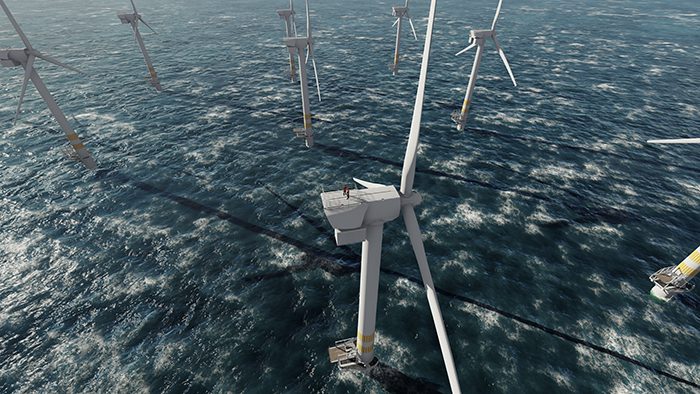The ECITB has welcomed the government’s new British Energy Security Strategy, which has set out plans to boost wind power, new nuclear, solar and hydrogen, along with domestic oil and gas, and make 95% of electricity low carbon by 2030.
As the employer-led skills body for the engineering construction industry, the ECITB will work to support industry with the considerable skills and workforce volume challenges we face to meet these ambitious new net zero targets.
The Energy Security Strategy envisages a significant acceleration of Nuclear power, with an ambition to install up to 24GW of power generation capacity by 2050 – which would meet approximately 25% of our projected electricity demand and equate to 8 new nuclear plants being built. A new government body, Great British Nuclear will be established alongside the £120 million Future Nuclear Enabling Fund to assist with this ambition to scale up delivery to the equivalent of one new reactor a year rather than one a decade.
Offshore wind also sees an ambitious new target, with the sector set to generate up to 50GW by 2030 – more than enough to power every home in the UK – with up to 5GW coming from floating offshore wind in deeper seas.
Oil and gas will see a new round of licences for new North Sea oil and gas projects planned to launch in autumn, helping to enhance energy security using UK gas that has a lower carbon footprint than imported from abroad.
Hydrogen production targets have been doubled from 5GW to 10GW of low carbon hydrogen production capacity by 2030, with at least half coming from electrolytic hydrogen and utilising excess offshore wind power to bring down costs.

ECITB Chief Executive Chris Claydon
Chris Claydon, Chief Executive of the ECITB, said: “The ECITB welcomes the Government’s British Energy Security Strategy, which sets out a clear path to boost domestic energy supplies and give greater energy security in the future as we continue our journey on the path to net zero.
“The announcement of significant new targets for nuclear, hydrogen and offshore wind, as well as plans to reboot domestic oil and gas production, makes the need to grow the engineering construction workforce, and provide the necessary training, even more pressing.
“The ECITB will play a pivotal role in developing the pipeline of new entrants and upskilling and reskilling the existing workforce, in collaboration with partners across each of these critical sectors. Our plans to support the skills needs of industry over the coming years will be set out in our new strategy for 2023-25, on which we will consult with our stakeholders later this month.”
Read the strategy in full here: https://www.gov.uk/government/publications/british-energy-security-strategy/british-energy-security-strategy





